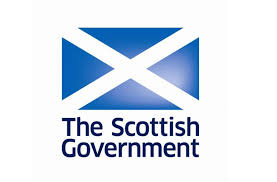Crofting Businesses: Carbon Audits and Preparing For Sustainable Farming
15 February 2019In recent times, crofters will have heard more about carbon audits than ever before. There are several reasons for why they are so important, such as Scotland’s net zero target for climate change by 2045, and UK agriculture aiming to cut emissions by 42% by 2050. There is also a demand from retailers and consumers. Scottish Government is encouraging all crofters and farmers to participate in carbon auditing, by providing funding opportunities. It is likely that carbon audits will be part of the next subsidy system which is currently in development.

What Is A Carbon Audit?
Carbon audits are essentially an assessment of the emissions of carbon dioxide equivalents (CO2e) produced by each enterprise within a croft business, over a year. The audit identifies sources where there is greatest scope to reduce emissions, can include comparisons with similar enterprises, and the accompanying report can give recommendations of potential options to reduce your carbon footprint.
- You can undertake a carbon audit yourself by signing up at agrecalc.com.
- You can use the free programme to enter information and produce results.
- A paid user gains more access to benchmarking data, analysis and KPIs.
- The audit covers a 12-month period (of your choice).
- Simply select all the enterprises on the croft that generate saleable output.

What Is Preparing For Sustainable Farming? (PSF)
- Part of the National Test Programme (NTP)
- The NTP is aimed at supporting and encouraging farmers and crofters to learn about how their work impacts on climate and nature
- PSF is a pilot programme
- PSF is a taste of things to come in 2025 or 2026 when at least half of all funding for farming and crofting will come with conditionality.
- Conditionality means that in the future recipients of support will be expected to deliver on targeted outcomes for biodiversity gain and low emissions production.
- PSF focuses on incentives to farmers and crofters to help them understand their Carbon emissions and sequestration and then help to identify recommendations that can lower these emissions and increase efficiencies.
- No application, just a claim process
Scottish Government currently offers funding for Carbon Audits and Soil Sampling, with other items such as Animal Health options likely.
Future farm support payments will be conditional on crofters and farmers providing information or carrying out certain tasks which will improve sustainability. The Scottish Government are piloting and testing this new approach to subsidies. They have set up a National Test Programme to pilot new schemes that might form part of farm support in future.
One of the schemes being piloted is called “Preparing for Sustainable Farming” (PSF). It is essentially a taste of things to come in 2025 when at least half of all funding for farming and crofting will come with “conditionality”.
Conditionality means that in the future, recipients of support will be expected to carry out measures to help biodiversity gain and reduce emissions from agriculture. PSF focuses on incentives to crofters and farmers to help them understand their Carbon emissions and sequestration, and then help to identify recommendations that can lower these emissions and increase efficiencies.
Funding is available under the PSF to carry out a Carbon Audit. The audit can be carried out by the crofter, or by an adviser. To be eligible for the £500 grant, the audit must be accompanied by recommendations from an accredited advisor.

Soil Sampling To Improve Nutrient Management Planning
In order to unlock funding within the PSF for soil analysis, a crofting business is required to undertake a Carbon Audit or have had one completed within the last 3 years (to PAS2050 standard). This must include having been reviewed by and include recommendations from an adviser as to actions that can be taken that will reduce emissions.
- For claiming for soil analysis, the crofter must have undertaken a Carbon Audit or have had one within last 3 years (to PAS2050 standard)
- including having been reviewed by and includes recommendations from a (FBAASS) adviser as to actions that can be taken that will reduce emissions.
- Undertake soil sampling on your croft and obtain fertiliser recommendations
Why do it?
- A grant for soil sampling and analysis
- Know your soil – pH impacts on fertiliser uptake
- A grant for gathering soil samples (£4/sample)
- A Development Payment (£250) to find out more about soil and nutrients.
Funding Available For Soil Sampling
There are two baseline allowances for soil analysis. The baseline allowance amount depends on whether you have more than, or less than, 50 hectares Region one land on your IACS SAF :
- Greater than 50ha Region 1 land on SAF 2022 = A maximum allowance calculated as 20% of Region 1 land x £30
- Less than 50ha Region 1 land on SAF 2022 = A maximum of £300 allowance for soil sampling (based on actual costs)
There is funding available for taking samples, at £4/sample, and a Development payment of £250 to recompense for time researching best practice for soil sampling and nutrient management e.g., referring to technical notes.
- Development funding is in addition to the baseline allowance

Examples Of Allowances
Useful Links
Sign up to the FAS newsletter
Receive updates on news, events and publications from Scotland’s Farm Advisory Service

